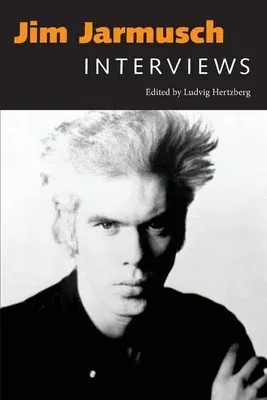Perhaps the most gifted and invigorating of the American independent
film directors of the past two decades, Jim Jarmusch (b. 1953) has
presented moviegoers with his uniquely personal vision, from his first
feature film, Permanent Vacation (1980), to his latest, Ghost Dog: The
Way of the Samurai (1999). As the interviews in this volume reveal,
Jarmusch has always been interested in mixing very different cultural
ingredients to form something uncategorizably new in films that
transcend the boundaries between high and low cultures. Jarmusch
half-mockingly described his movie Stranger Than Paradise (1984), the
film that first brought him substantial notice, as "a semi-neorealist
black comedy in the style of an imaginary Eastern European film director
obsessed with Ozu, and familiar with the 1950s American television show
The Honeymooners." His unique approach to movie making jump-started the
low-budget American independent film movement with Stranger Than
Paradise, which won the Camera d'Or for best first feature at the Cannes
Film Festival. Ranging from 1981 to 2000 this collection chronicles the
career and sensibility of a thoroughly independent filmmaker. It
features one previously unpublished interview, two that have never
appeared in English, and another two which are presented in their
entirety rather than in the abridged forms in which they were published.
Jarmusch discusses the actors with whom he has worked (Johnny Depp,
Forest Whitaker, and Roberto Benigni among them), the progression of his
camera and editing techniques, his fascination with the co-existence of
disparate and often opposing cultures, and his cult status as an
independent movie director. He comes across as kind, modest, and
attentive, with a warm sense of humor and an ever-glowing affection for
and dedication to his art, and for all the small and marginalized
aspects of the world. Ludvig Hertzberg is a freelance film critic and a
doctoral candidate in cinema studies at Stockholm University, Sweden.


